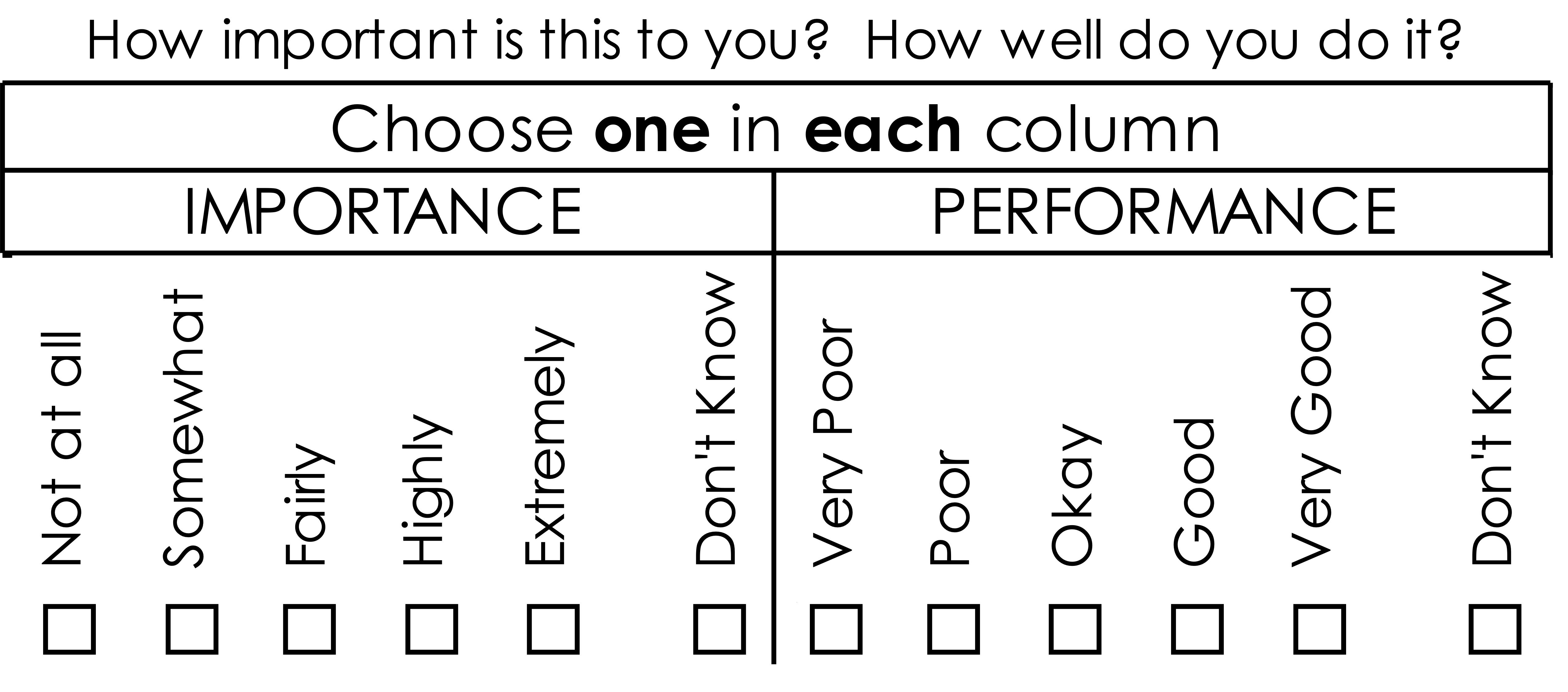How to Create a Not to Do List
- Home
- Basic Productivity Skills
- Create a Not to Do List
Sit down and take some time to create a not to do list. Write down all those things which you know you are not prepared to do or which are simply not effective things for you to be doing.
Being prepared ahead of time allows you to make better decisions about what you will do, have a quicker response for those who make demands on your time and remain focused on effective actions.
And don’t get sidetracked into agreeing to do something else. If it is related to your not to do list, it probably means don’t volunteer to do it. It’s not that you are being miserable. It’s that you know what your priorities are and you are vigorous about accomplishing them.
"In the same way, today many are harming themselves through the temptation to do more than their limits will allow. Walking, running, and ambition are not necessarily unhealthy. Too much, however, is universally unhealthy. Overload is like that. The problem is not with the 'load'. The problem is with the 'over.'"
Richard Swenson, Margin
Five Days of Coaching to Create a Not to Do List, and Use It

DAY ONE
Take some quiet time to answer this question today: What matters? Check last week's to-do list against your answers to this question.
The Coach asks:
- What really, really matters? Is this you saying that or someone else? What matters to you? Big question - What were you put on this earth to do? To be?
- Check your last week's to do list against your answers to the question of what matters? How do the two line up. Edit your "what matters" answer if needed, to make it more reflective of you.
- How often does your to do list reflect your "what matters" list? What accounts for any discrepancy? Have you allowed in your thinking for some of the items on your to do list that don't seem that important to you but have to be done?
- What are you seeing?
DAY TWO
Today create a not to do list. Remember it's yours. It's not for someone else. Don't be ambiguous. Clearly record your thoughts. If need be, refer to your list frequently to avoid being drawn into ineffective or low-priority action.
The Coach asks:
- Create your not to do list. Be clear.
- Start living out your not to do list. What attitude will be in alignment with this?
- Notice how your not to do list is working for you. Adjust as needed in order to create greater clarity.
DAY THREE
Anticipate requests that might be made of you, or actions that might require your time. Plan now for your response, particularly to those things that you need to respond “no” to.
The Coach asks:
- Shortly you will likely receive requests for your time that are covered by your "not to do" list. Take some time to think about how you will respond to these. What will you say? How will you help the other person understand your position?
- Keep in mind some will never understand that you are declining their request. They will have to "play catch up" later, if they ever do. Be prepared for this.
- Go back and review practice # 6, Say No a Whole Lot More. It may aid your thinking as you respond to others.
- How do you think this will aid in you getting more of priorities done that "have your name on them?" They represent "what matters" to you.
DAY FOUR
If appropriate, create a not-to-do list for your company, organization, team, family or any other grouping you are in. Consult with those involved. This may represent a big step forward.
The Coach asks:
- What other groups are you in that could create a not to do list? How do you think such clarity would benefit all of you working together?
- What is the best way to introduce creating a not to do list? Who is the best person to work with or through?
- How will you proceed with this?
- Now that you have introduced this, what needs to happen? What do you need to do to maintain momentum? How are others responding? If anything, what needs to be addressed?
DAY FIVE
Get over the guilt of not being able to do everything. You are now much more focused and able to act on the true priorities. This will have a bigger impact for good on the people and causes you care about, than having an ineffective list of scattered to-dos.
The Coach asks:
- You felt one way after starting to create a not to do list. Now, how do you feel? What do you need to do with these feelings?
- How freeing is it to know and admit that you cannot do everything? How has this freedom empowered you in other areas?
- In your own words, what are the benefits of taking the time to create a not to do list, and then practicing it?
- What's next?
Spiritual Reflection for Christian Leaders

As a Christian Executive Leadership Coach I encourage Christian leaders to reflect on God's Word to add to their wisdom.
- Ac 6:1 - 7 "So the twelve gathered all the disciples together and said, "It would not be right for us to neglect the ministry of the word of God in order to wait on tables. ... v7 So the word of God spread. The number of disciples in Jerusalem increased rapidly ...
- Ezr 4:3 You have no part with us in building a temple to our God. We alone will build it for the Lord, the God of Israel, as King Cyrus, the king of Persia commanded us.
- Mt 5:37 All you need to say is simply "Yes" or "No."
- 2 Cor 1:17 - 19 Or do I make my plans in a worldly manner so hat in the same breath I say both yes, yes and no, no? But as surely as God is faithful, our message to you is not yes and no. For the Son of God, Jesus Christ, who was preached among you by us - by me and Silas and Timothy - was not yes and no, but in him it has always been yes. ...
If you are a leader, executive, or senior level professional looking to work with a Christian Executive Coach, I invite you to connect with me here.
If appropriate, we can meet by phone or Zoom to discuss your situation.
Record Your Progress
This is your opportunity to track your progress. Start by asking yourself how important this practice is to you? Record the importance as - not at all, somewhat, fairly, highly or extremely.
Now next to it ask yourself how well you carry out this practice. Record your performance as - very poor, poor, okay, good or very good.

The things we track, we pay attention to. Across time, come back and record your new results. You will find that as you are intentional about making improvements, you will bump your "score" up higher.
This is significant. Don't miss the opportunity to acknowledge your success, and use it as a springboard for making even further gain.
Notes
I'm sure you noticed the difference between Habit # 6, Saying No, and this habit of Making a Not to Do List.
Once you create a not to do list, saying "no" makes it actionable. It puts feet to your resolve to eliminate doing certain things. Together these are powerful practices or habits to make a part of your leadership, and to introduce to your team.
Contact me here Privacy Policy
© G.E.Wood and Associates. All Rights Reserved in all media.
G.E. Wood and Associates is an international coaching firm registered in Ontario, Canada
142 Pratt Crescent, Gravenhurst, Ontario, Canada, P1P 1P5